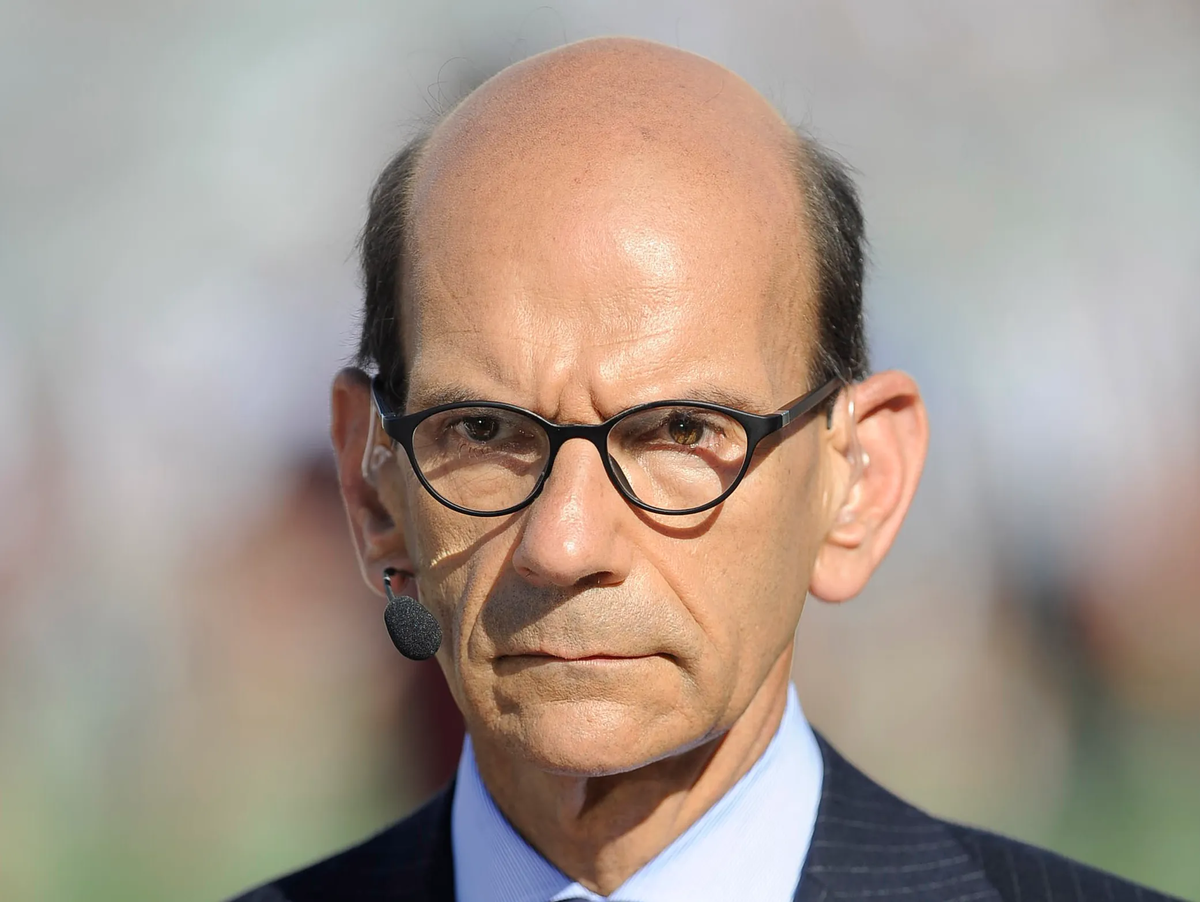
Imago
Paul Finebaum ripped into Lane Kiffin’s denial of an ultimatum by Ole Miss. Source: Imago

Imago
Paul Finebaum ripped into Lane Kiffin’s denial of an ultimatum by Ole Miss. Source: Imago
Everyone knows Paul Finebaum for his strong opinions and unfiltered takes on college sports, which often grab headlines. But what many might not realize is that Finebaum actually started his career as a sportswriter and columnist back in 1980. He quickly became a major voice in Southern journalism, winning several awards for his writing. In 1981, he and a couple of others won the prestigious ASWA’s Herby Kirby Award for their coverage of a basketball recruit. And Finebaum is now honoring one of those fellow awardees who passed away.
Watch What’s Trending Now!
June 18 turned out to be a dark day in the Tuscaloosa camp. Rubin E. Grant, a pioneer in Alabama journalism, passed away. The longtime high school writer for the Birmingham Post-Herald was honored in 2022 as one of the 50 legends of sports writing in the state by the Alabama Sports Writers Association. He was 68 years old. And Finebaum could not stop himself from paying tribute in Grant’s honor.
To most sports writers, Grant has been a mentor. Actually, more than that, he was a true friend. Maybe all of them bonded over Grant’s writings, as he wrote stories with genuine honesty and a desire to shine a positive light on young people in a world that too often can be challenging, cruel, and critical for any age.
ADVERTISEMENT
On June 20, Finebaum appeared on the Jox 94.5 podcast. He shared how he had bonded with Grant in the most unexpected ways. “There are so many different ways to go with Rubin, but he was a trailblazer, and he was the first Black sports editor of the CNW at Tuscaloosa, which in the late 70s wasn’t an easy thing to do. But did things with grace and compassion.”
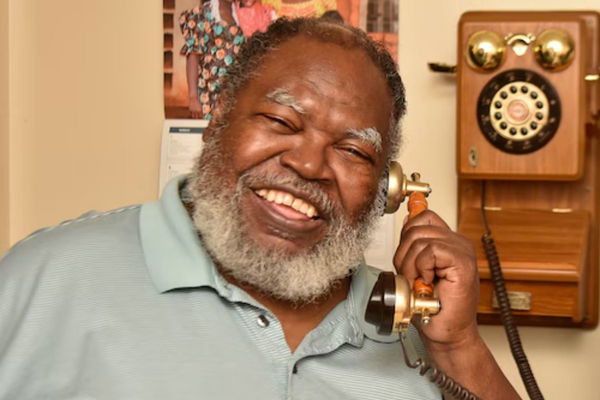
ADVERTISEMENT
Finebaum added, “He was the prep editor, the high school editor at the newspaper when I got there, and we were thrown together very early on in some pretty controversial stories, which in many ways helped define my entire career, a story in Huntsville and in the early 80s.”
ADVERTISEMENT
Rubin Grant’s career as a sportswriter was impressive, covering everything from Bear Bryant’s legendary teams to high school standouts like Bo Jackson and Cadillac Williams. He spent 25 years at the Birmingham Post-Herald as prep editor and even worked briefly at the Hoover Gazette. A 1979 University of Alabama graduate, Grant also made history as the first Black sports editor of the student newspaper, the Crimson White. Long before the transfer portal flip era, Grant was already digging deep into the why and how of player recruitment, a rare approach for his time.
Since the ESPN analyst had known Rubin for a long time, he shared how he was much more than a great journalist. Finebaum shared, “He was deeply religious and eventually became a minister, probably about six months after I got to the newspaper… Rubin’s mother passed away in Montgomery, and we went down to the funeral. It was in an old church, and the next thing I’m kind of you know, halfway paying attention. There’s a man up there giving a eulogy with fire and brimstone, I mean the kind of things you see in a movie, raising his voice.” And that was Rubin Grant. Grant was a licensed Baptist Minister unafraid to share the Gospel or his love for Jesus with anyone he encountered.
Meanwhile, he kept soaring high in his career as a sports writer. Later on in 2002, Grant won first place in the Alabama Associated Press Managing Editors Competition for his columns on high school sports. Now his acquaintances are mourning the irreplaceable loss.
ADVERTISEMENT
Rubin Grant’s reach extended beyond scores and stats—he touched lives
Longtime friend Solomon Crenshaw Jr. said, “Rubin Grant was the best. As a person, he was the highest standard individual in terms of not just being known but knowing how to carry himself. There was no one he didn’t get along with. No one with whom he couldn’t identify. Professionally, top notch doesn’t seem like a high enough bar.” During his 25-year stint at the Post-Herald, Grant crossed paths with writers like Bill Lumpkin, Ray Melick, along with Paul Finebaum.
Melick paid his heartfelt tribute. “I remember him covering Charles Barkley in basketball. And, of course, he covered Michael Jordan that summer in baseball with the Barons. Rubin really had a broad depth of things that he covered, but at his core he was just a great person. He loved his family, loved his friends, encouraged people, stayed in touch with people. He meant a lot to an awful lot of people even outside of sports.” Grant was once covering a regional basketball tournament at Jacksonville State. The Altamont boys were playing and leading big. That’s when one of the Altamont boys walked over to press row only to share a word with Grant.
ADVERTISEMENT
He said, “Mr. Grant, I really admire your work.” That’s how Rubin Grant spread his love far and wide. Then the story took a humorous turn. The opponent started a big scoring run and ultimately won the game going away. As writer Ben Thomas recalled his conversation with Grant, it was a running joke: “10-0 run since he admired your work. 17-2 since the admiration.” This became a shared joke that the duo revisited every time they met over the years. It’s a heavy day for Alabama and an even heavier one for sportswriters everywhere—Grant’s legacy leaves a silence that’s hard to fill.
Top Stories
NFL Announces Punishment Decision for Josh Allen’s Bills Following Divisional Round Loss
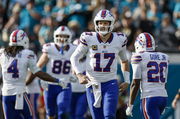
Paramount’s UFC Launch Under Fire After Kourtney Kardashian’s Husband Sparks Backlash

When 49ers HC Kyle Shanahan Got Arrested Defending Raheem Morris at 2005 NFL Combine
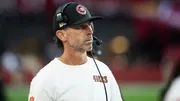
Joe Rogan Shows No Mercy at Rose Namajunas’ Past as She Falls to Natalia Silva at UFC 324
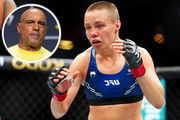
Donald Trump Announces Super Bowl Decision, Slams Halftime Performer Bad Bunny & Green Day

Mike McDaniel Quits on Cleveland Browns as Shedeur Sanders Receives Worrying QB Update

ADVERTISEMENT
ADVERTISEMENT
ADVERTISEMENT
ADVERTISEMENT



